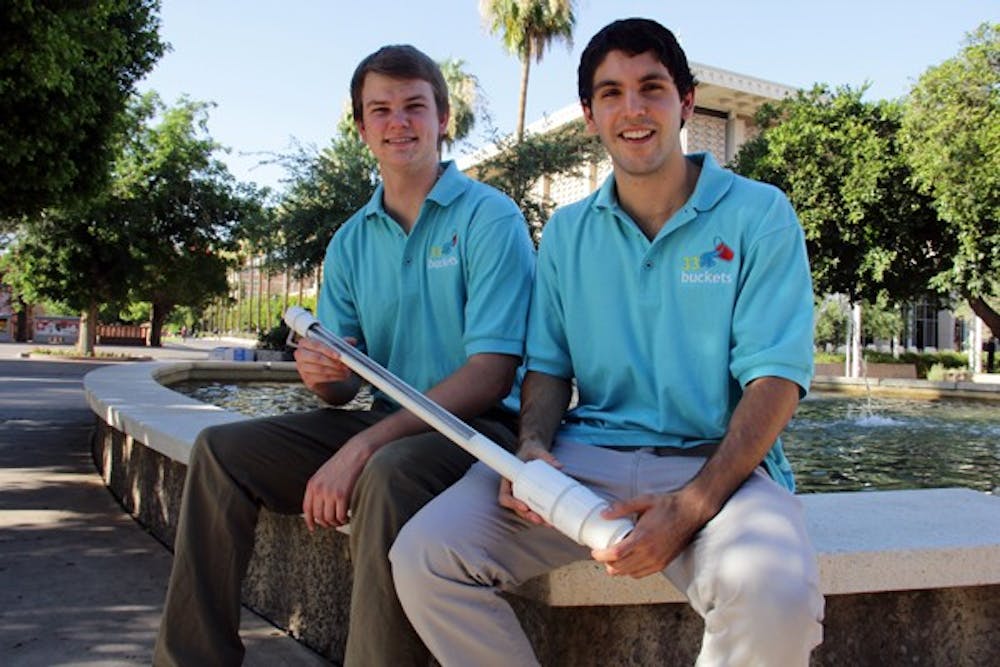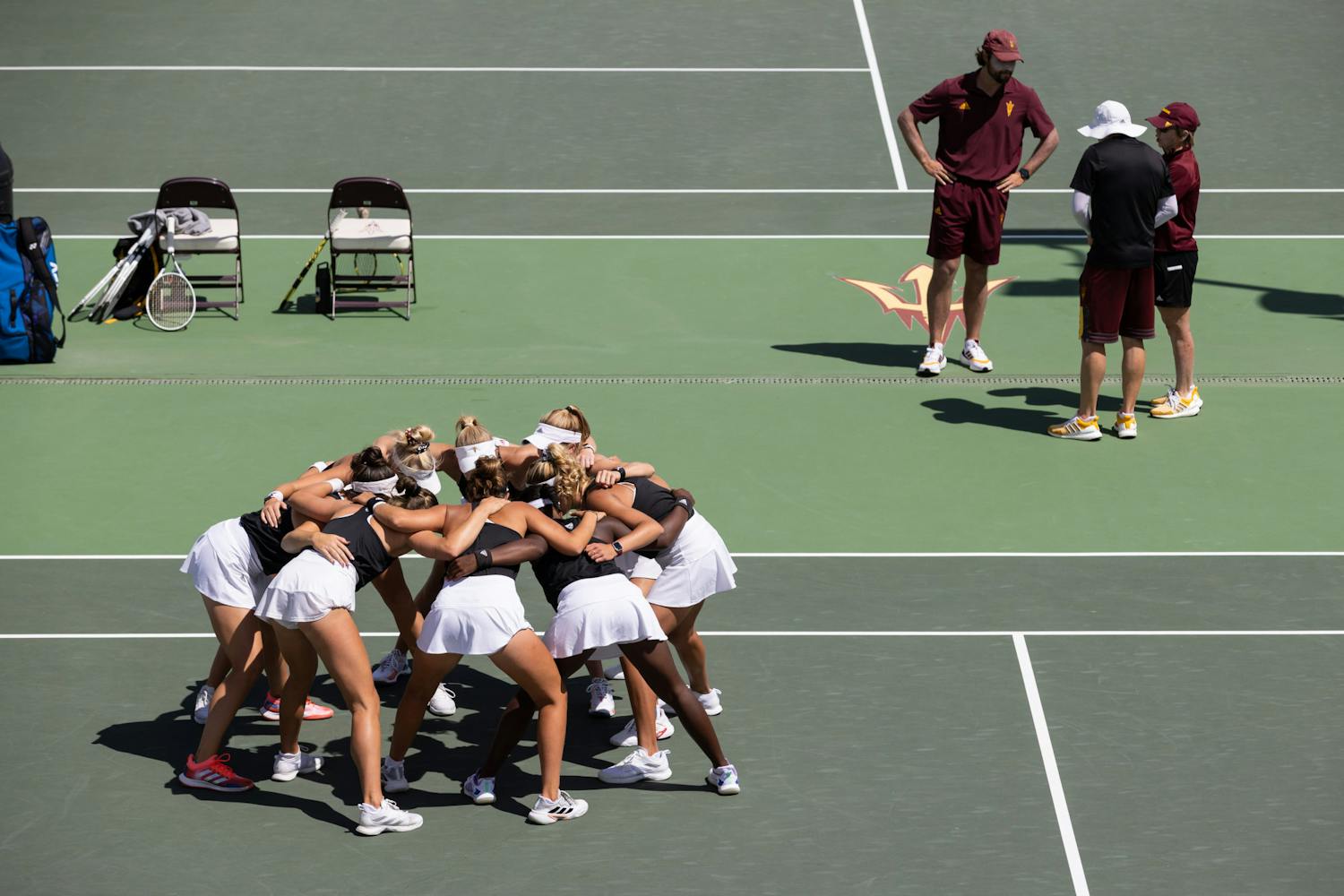A team of five engineering students were finalists in the Dell Social Innovation Challenge for their development of a filtration system designed to remove arsenic from water in Bangladesh communities.
The team won $5,000 to continue developing their project as well as a technology package that included laptops and computer towers for each member.
The project, "33 Buckets," was developed by biomedical engineering seniors Pankti Shah, Mark Huerta and Varendra Silva, biomedical engineering junior Connor Wiegand and mechanical engineering senior Paul Strong.
The "33 Buckets" team was competing in the Dell Challenge internationally with students from universities such as University of California, Berkeley, Waseda University and University of Oxford. The winning team was a group comprised of Cambridge University, Tufts University, Massachusetts Institute of Technology and Harvard University students. The winning group won $50,000 along with technology packages.
The challenge draws about 60,000 students per year.
The team formed in an Engineering Projects in Community Service class with the intent to purify water at the Rahima Hoque Chetonabikash Girls College in rural Bangladesh.
With their success in the Dell Challenge, the team plans to expand their purification system to other schools so that Bangladesh communities will have access to cheap, clean water.
Huerta said the arsenic, a naturally-occurring element in the ground, affects over 77 million Bangladesh people and dramatically increases the risk of cancer.
He said there are plenty of household solutions to the contamination, but not many families can afford to buy them.
"We're going to ... implement community-based water filtration systems at the (Bangladesh) schools," Huerta said. "There are wells by the schools. We're going to filter the water there, bottle it at the source and sell it to the surrounding community."
Huerta said the students at the schools will be in charge of selling the water.
He said though they will be selling the water, it will be cheaper than other bottled water products and household filter options in Bangladesh.
Huerta said the filtration system will be "sustainable."
"The income (from selling bottled water) will be used to sustain the filter and make profits for the school, which they can use to improve education," Huerta said.
Wiegand said developing the project through the Dell Challenge has helped the team gain skills in leadership, social entrepreneurship and time management as well as offered networking opportunities.
"It really showed us how you can start a ... business that can help itself and help others at the same time," Wiegand said.
He said the team will continue to receive mentoring from Dell while they develop and implement their project.
Wiegand said Dell's investment in finding and funding solutions to global problems is huge.
"Innovation comes from these young kids in college that aren't bound in by what people say they can or can't think about," Wiegand said. "The companies that are tapping into that are what's going to help advance the world."
Shah, the team leader, said she was excited to advance the project, though the team still has a long way to go before implementation of the filters.
"(Being a finalist in the Dell Challenge) really validates that our project is important," Shah said. "It's exciting to see that there are people outside of our team, outside of our class and outside of ASU who recognize that water is a big issue and that they believe in us to be able to make a difference."
Reach the reporter at dgrobmei@asu.edu
Follow us on Twitter or like us on Facebook.





